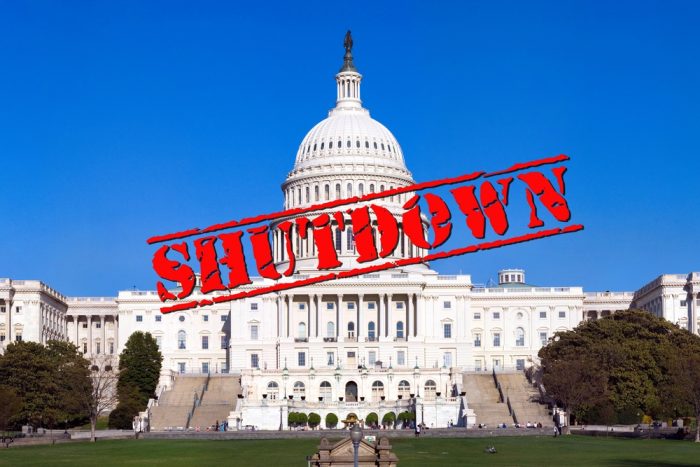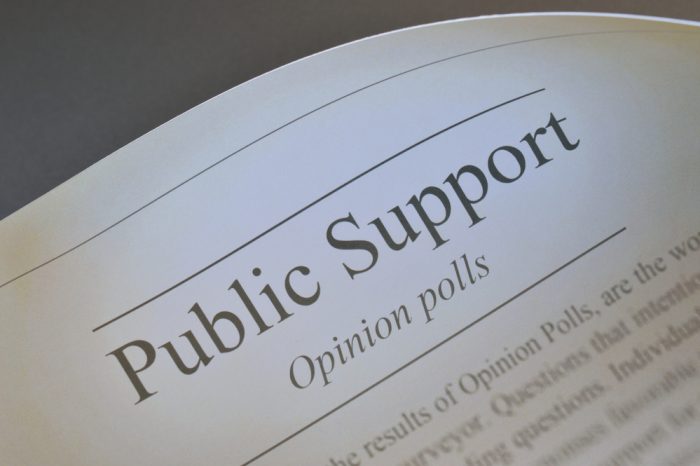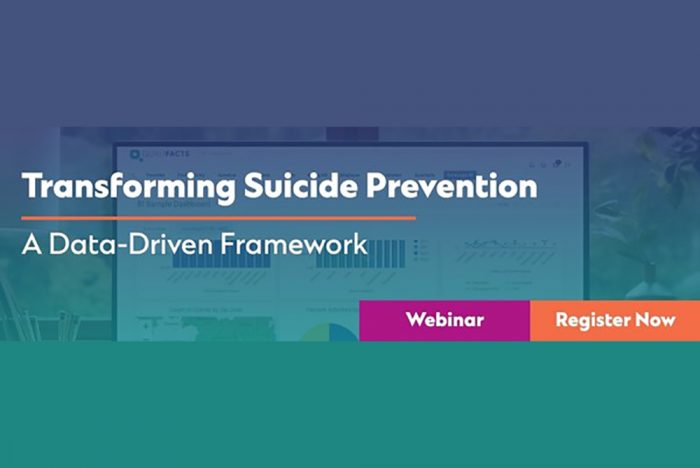RCPA Member WellSpan to Provide 1 Million Meals to CPFB to Address Food Insecurities

ODP Shares Resources for Maintaining and Verifying Medicaid Eligibility
The Office of Developmental Programs (ODP) has shared ODPANN 25-097 and its accompanying attachments. This communication informs all parties of the importance of supporting individuals in maintaining their eligibility for Medicaid and in verifying an individual’s eligibility for Medicaid prior to delivering services. Read the announcement for details, and view the attachments below:
Reminder for IPRC Webinar “The Intersect of Functional Imaging and Clinical Presentation” on Nov. 3
Monday, November 3, 2025
12:00 pm – 1:00 pm EST; 11:00 am – 12:00 pm CST;
10:00 am –11 am MST; 9:00 am – 10:00 am PST
Register Here
Presenter Bios:
Christine H. Koterba, PhD, ABPP, is a Pediatric Neuropsychologist at Nationwide Children’s Hospital and a Clinical Associate Professor of Pediatrics at The Ohio State University. She is the attending inpatient neuropsychologist at NCH and provides neuropsychological consultation and assessment in inpatient and outpatient settings. She is also involved in the pre- and post-doctoral neuropsychological training programs. Her clinical interests include pediatric neuropsychology, acute recovery from brain injury, illnesses (COVID-19, long COVID), and other conditions that impact neurological functioning, and pediatric rehabilitation.
Kristen Hoskinson, PhD, a pediatric neuropsychologist, targets her research aims to improve understanding of the neuroanatomical and functional substrates that contribute to the constellation of cognitive, emotional, and behavioral sequelae of childhood neurologic injury, including pediatric brain tumor, traumatic brain injury, and complex congenital heart disease. She integrates neuroimaging methods with assessed and observable social and emotional functioning to improve early identification of those at elevated risk and at greatest need for intervention. Currently, her funded work focuses on integrating functional MRI and diffusion tensor imaging of white matter integrity, with a particular focus on social cognitive and executive functions networks.
Aaron McAllister, MS MD, is a pediatric neuroradiologist in the Department of Radiology at Nationwide Children’s Hospital, providing world class care to patients. He is trained in general radiology and has completed fellowships in both pediatric radiology and pediatric neuroradiology at Cincinnati Children’s Hospital. He is board certified in both diagnostic radiology and pediatric diagnostic radiology. Dr. McAllister serves as a clinical assistant professor in the Department of Radiology at The Ohio State University College of Medicine, as well as an adjunct assistant professor of Radiology at the School of Medicine at the University of Toledo Medical College.
Objectives
Following this course, participants will:
- Be able to describe two common outcomes following diffuse axonal injury;
- Be able to discuss areas of the brain involved in executive functions; and
- Be able to define basic functions controlled by different areas of the brain.
Audience: This webinar is intended for all interested members of the rehabilitation team.
Level: Beginner–Intermediate
Certificate of Attendance: Certificates of attendance are available for all attendees. No CEs are provided for this course.
Register
Complimentary webinars are a benefit of membership in IPRC/RCPA. Registration fee for non-members is $179. Not a member yet? Consider joining today.
Attendees may wish to review Understanding the Basics of Neuro-imaging and Practical Applications for the Pediatric Rehabilitation Provider prior to this session.
Update Issued for Incident Management Rebalancing Initiative Phase 1 Guidance
The Office of Developmental Programs (ODP) has shared an update to communication ODPANN 25-093. The purpose of this announcement is to provide updated guidance related to the ODP Incident Management (IM) Rebalancing Initiative. Updates have been made to the “Clarifying the Definition of Serious Injury” section of this announcement. Updates appear in red text. The guidelines are organized into seven separate topics covering the following:
- Finalizing Incident Reports
- Reducing Duplicative and Multiple Incident Reports
- Clarifying the Definition of Serious Injury
- Clarifying the Definition for Discovery Date
- Managing Events Occurring Prior to Enrollment
- Discontinuing the Use of Optionally Reportable Events (OREs)
- Discontinuing the Use of Illness/Other and Illness/COVID Incident Categories.
Please view the announcement for additional information and details.
Drexel University Announces 33rd Behavioral Health Forensics Conference

Drexel University’s Division of Behavioral Healthcare Education has announced its 33rd Forensic Rights and Treatment Conference to held virtually on Wednesday and Thursday, December 10–11, 2025. The conference theme is “Contemporary Issues Impacting Forensic Services.” The conference will feature live and pre-recorded presentations addressing a wide variety of forensic topics pertinent to behavioral health. The virtual format allows participants to earn additional continuing education credits by accessing session recordings after the conference. More information is available online or by downloading the conference flyer.
No-Cost CEs Now Available Through FR-ACT Program
The Office of Children, Youth and Families is offering no-cost continuing education opportunities for service professionals. The Department’s First Responder Addiction and Connection to Treatment program (FR-ACT) is a training program within the Office of Drug Surveillance and Misuse Prevention that was established to ensure first responders and public safety professionals, including CYS professionals, have the tools necessary to respond to the overdose epidemic. Training is offered at no cost and is available in all 67 counties across Pennsylvania. The Department works with an expert training vendor, St. Joseph’s University, to deliver live trainings.
FR-ACT trains and provides skills to first responders and public safety professionals on opioid use disorder, overdose response, and related information, including:
- Substance use disorder as a chronic disease;
- Stigma reduction;
- Providing resources to overdose survivors and families;
- Naloxone use and leave-behind practices; and
- Warm hand-offs and connection to treatment.
Continuing education credits are now available for Pennsylvania State Board of Social Workers, Marriage and Family Therapists, and Professional Counselors licensees who complete FR-ACT training. There are two ways to participate:
- Complete the online, self-study training on TRAIN PA and earn 1 credit hour. Self-study training is available here.
- Schedule a training for yourself or your agency by contacting St. Joseph’s University Center for Addiction and Recover Education. OR, you can email the Department. Credit hours available to participants of live training will depend on the length of live training.
More information about FR-ACT may be found here. Please contact Emma Sharp with any questions.
National Council Issues Update on Federal Shutdown as Day 24 Arrives
Action Needed: Support HB1939 to Establish Annual IDD Rate Adjustments
The Pennsylvania House Human Services Committee is scheduled to vote on HB1939 on Tuesday, October 29, 2025.
HB1939, along with its companion bill in the Senate (SB617), would establish annual rate increases for Intellectual and Developmental Disabilities (IDD) services based on the Consumer Price Index for All Urban Consumers (CPI-U). This bi-partisan legislation, supported in both chambers, would help ensure that provider reimbursement rates keep pace with inflation, supporting workforce stability and maintaining high-quality services across the system.
RCPA supports HB1939 and encourages members to contact the House Human Services Committee to express support and request a “Yes” vote on the bill.
- Committee Member Contact Information: Human Services Committee
- Full Bill Text: HB1939 – ID/A Market Index for DSP Services
Please direct any questions to Tim Sohosky.
RCPA Member Qualifacts Presents Transforming Suicide Prevention: A Data-Driven Framework
Transforming Suicide Prevention: A Data-Driven Framework
Date: Thursday, November 13, 2025
Time: 3:00pm EST / 2:00pm CST
Featuring: Qualifacts, CenterPointe & Zero Overdose
Every life lost to suicide is one too many. Behavioral health organizations have the unique opportunity to transform suicide prevention from a reactive approach into a proactive, system-wide commitment. Achieving this level of transformation requires vision, leadership, and the ability to harness data to drive meaningful action. The Zero Suicide framework offers a revolutionary pathway to make this vision a reality.
Join Qualifacts for this webinar, “Transforming Suicide Prevention: A Data-Driven Framework,” on November 13 at 3:00 pm ET. You’ll hear from the leaders of the Zero Suicide initiative about the efficacy and evidence-based results of the framework and discover how organizations like CenterPointe are leveraging data-driven strategies and Business Intelligence (BI) tools to deliver measurable change and improve care quality.
Featured Speakers
- Mary Givens
Manager, Solutions Consulting & CCBHC Program, Qualifacts
With 18 years at Qualifacts, Mary specializes in supporting behavioral health providers through CCBHC transformation and data-driven care delivery. - Ryan Carruthers, Ph.D., LMHP, LADC, CPSS
Chief Clinical Officer, CenterPointe
Carruthers leads CenterPointe’s clinical strategy and innovation efforts, driving outcomes through data-informed programming and suicide prevention initiatives. - Virna Little, PsyD, LCSW-r, CCM, SAP
Chief Operating Officer, Zero Overdose
A national expert in suicide and overdose prevention, Dr. Little advances evidence-based frameworks like Zero Suicide and integrated behavioral health care models.















